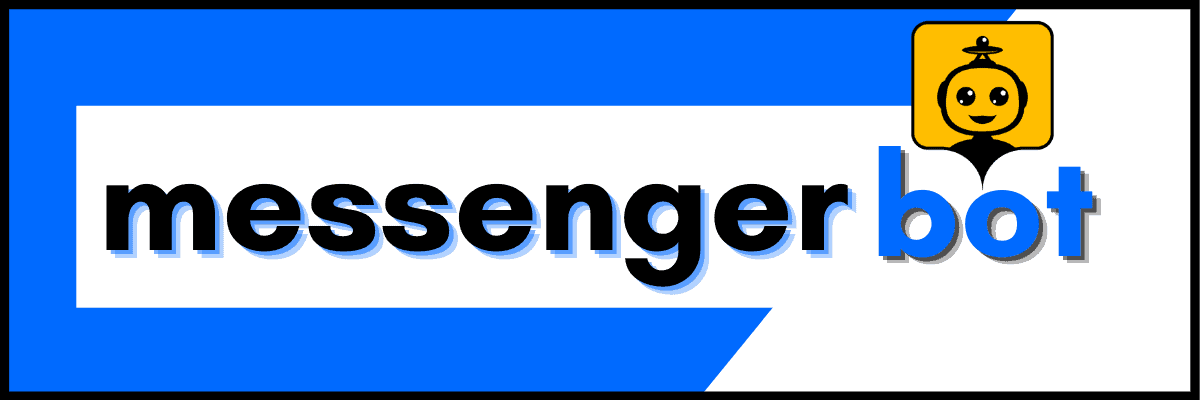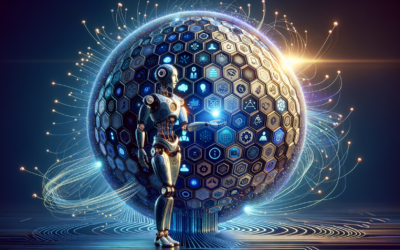In today’s fast-paced digital landscape, businesses are continuously seeking innovative solutions to elevate their customer experience and deliver exceptional service. One game-changing technology that has emerged as a powerful ally is the integration of artificial intelligence (AI) into customer service operations through AI-powered chatbots. These intelligent virtual assistants are revolutionizing how companies interact with their customers, offering seamless, personalized, and round-the-clock support. From instantly addressing common queries to handling complex issues with human-like empathy, AI chatbots are transforming the customer service realm, driving efficiency, reducing operational costs, and ultimately enhancing customer satisfaction. In this comprehensive guide, we’ll explore the world of AI chatbots for customer service, uncovering the best tools, real-world examples, and the strategic implementation of this cutting-edge technology to unlock a superior customer experience.
What are the best AI chatbots for customer service?
As a cutting-edge AI chatbot platform, we pride ourselves on delivering exceptional customer service experiences through advanced conversational AI technology. While there are many AI chatbot examples in the market, we firmly believe our solution stands out as one of the best for customer service.
Zendesk AI chatbot
Our Zendesk AI chatbot is a powerful tool designed to revolutionize the way businesses interact with their customers. Leveraging state-of-the-art natural language processing and machine learning capabilities, our chatbot can engage in intelligent, human-like conversations, providing quick and accurate responses to customer inquiries.
One of the key advantages of our Zendesk AI chatbot is its seamless integration with the Zendesk platform, a leading customer service and engagement solution. This integration allows businesses to streamline their customer support operations, ensuring a consistent and efficient experience across all channels.
Customer service chatbot examples
To illustrate the power and versatility of our AI chatbot, let’s explore some real-world customer service chatbot examples:
- Order Tracking: Our chatbot can seamlessly integrate with e-commerce platforms, allowing customers to check the status of their orders, track shipments, and receive real-time updates without the need for human intervention.
- Frequently Asked Questions: By leveraging our extensive knowledge base, the chatbot can provide instant answers to common customer queries, reducing the workload on support staff and improving response times.
- Product Recommendations: With its advanced natural language processing capabilities, our chatbot can engage in conversational product recommendations, guiding customers to the most suitable solutions based on their preferences and needs.
These examples merely scratch the surface of what our AI chatbot can accomplish. With its ability to learn and adapt over time, the possibilities for enhancing customer service are truly limitless.

II. Can I use chatbot for customer service?
Yes, chatbots can be effectively utilized for customer service. By leveraging natural language processing and machine learning algorithms, chatbots can handle a wide range of customer inquiries and interactions, reducing the workload on human agents and improving response times.
Chatbots excel at handling routine queries, such as tracking orders, providing product information, and addressing frequently asked questions. They can also assist with basic troubleshooting, appointment scheduling, and processing refunds or returns. According to a study by IBM, chatbots can handle up to 80% of routine customer service inquiries, freeing up human agents to focus on more complex issues.
A. Companies using chatbots for customer service
Many leading companies across various industries have successfully implemented chatbots for customer service, realizing the benefits they offer. Here are some examples:
- Sephora: The cosmetics retailer utilizes a chatbot named Sephora Virtual Artist to provide makeup recommendations and product information to customers.
- Whole Foods Market: The grocery chain’s chatbot, Whole Foods Market Bot, assists customers with finding recipes, locating stores, and answering frequently asked questions.
- Staples: The office supply retailer uses a chatbot named Staples Bot to help customers find products, track orders, and get assistance with common issues.
- Mastercard: The financial services company offers a chatbot called Mastercard Bot that provides information about credit card features, rewards programs, and account management.
These companies have successfully leveraged chatbots to enhance their customer service capabilities, providing convenient and efficient assistance to their customers.
B. AI customer service
AI-powered customer service goes beyond traditional chatbots by incorporating advanced natural language processing, machine learning, and deep learning technologies. These sophisticated systems can understand complex queries, provide more accurate and personalized responses, and even learn and improve over time.
Companies like Amazon, Apple, and Brain Pod AI are at the forefront of leveraging AI for customer service, offering intelligent virtual assistants and chatbots that can handle intricate queries and provide human-like interactions.
AI customer service solutions can significantly enhance the overall customer experience by providing faster resolution times, personalized recommendations, and seamless omnichannel support. As AI technologies continue to advance, we can expect to see even more sophisticated and intelligent customer service solutions in the future.
III. Can you use AI for customer service?
Absolutely, AI can be effectively utilized for customer service to enhance efficiency and customer experience. Here are some ways AI is being leveraged in customer service:
- Chatbots and Virtual Assistants: AI-powered chatbots and virtual assistants can handle routine queries, provide instant responses, and guide customers through self-service options, reducing wait times and agent workload.
- Natural Language Processing (NLP): NLP enables AI systems to understand and interpret human language, allowing for more natural and conversational interactions with customers.
- Sentiment Analysis: AI can analyze customer sentiments from text, voice, or even facial expressions, helping agents identify and prioritize dissatisfied customers and tailor their responses accordingly.
- Predictive Analytics: By analyzing customer data and interaction patterns, AI can predict customer needs, preferences, and potential issues, enabling proactive support and personalized recommendations.
- Knowledge Management: AI-powered knowledge bases and search engines can quickly retrieve relevant information, empowering agents with accurate and up-to-date solutions for complex queries.
- Automation: AI can automate repetitive tasks, such as data entry, ticket routing, and follow-up communications, freeing up agents to focus on more complex issues.
- Personalization: AI can analyze customer profiles, purchase histories, and interaction data to personalize customer experiences, enhancing satisfaction and loyalty.
- Quality Assurance: AI can monitor and analyze customer interactions, providing feedback and coaching to agents, ensuring consistent and high-quality service delivery.
By leveraging AI in customer service, companies can improve response times, increase operational efficiency, and deliver more personalized and satisfying customer experiences, ultimately enhancing customer satisfaction and loyalty (Gartner, 2022; Salesforce, 2023; McKinsey, 2021).
A. AI for customer service
The integration of AI for customer service has become a game-changer for businesses seeking to streamline their operations and enhance customer experiences. Leading AI companies like IBM Watson Assistant, Salesforce Einstein, and Amazon AI Services have developed advanced AI solutions tailored for customer service applications.
One of the most prominent examples of AI for customer service is the implementation of Zendesk AI chatbots. These AI-powered chatbot examples can understand and respond to customer inquiries in natural language, providing immediate assistance and resolving common issues without the need for human intervention. By leveraging Natural Language Processing (NLP) and Machine Learning (ML) algorithms, these chatbots can learn from past interactions and continuously improve their capabilities, ensuring more accurate and personalized responses.
Additionally, Genesys AI for customer service offers a comprehensive suite of AI-powered solutions, including virtual assistants, predictive engagement, and sentiment analysis. These tools enable businesses to anticipate customer needs, provide proactive support, and analyze customer emotions, ultimately leading to more satisfying interactions and increased customer loyalty.
B. AI in customer service
The application of AI in customer service extends beyond chatbots and virtual assistants. Companies are leveraging AI technologies to enhance various aspects of their customer service operations, including:
- Intelligent Routing: AI algorithms can analyze customer queries and route them to the most appropriate agent or department, based on factors such as language, product expertise, and issue complexity.
- Predictive Analytics: By analyzing historical data and customer interactions, AI can predict potential issues or customer churn, enabling proactive measures to be taken.
- Knowledge Management: AI-powered knowledge bases can provide agents with relevant information and solutions, ensuring consistent and accurate responses.
- Sentiment Analysis: AI can analyze customer sentiment from various channels, such as social media, emails, and chat conversations, helping agents prioritize and respond appropriately to dissatisfied customers.
- Quality Assurance: AI can monitor customer interactions, providing feedback and coaching to agents, ensuring adherence to quality standards and identifying areas for improvement.
By embracing AI in customer service, companies can significantly improve operational efficiency, reduce response times, and deliver personalized, seamless experiences that foster customer satisfaction and loyalty. As AI technology continues to evolve, its applications in customer service will become even more sophisticated and impactful.
What is AI driven chatbot for customer support?
An AI-driven chatbot for customer support is a virtual assistant powered by artificial intelligence (AI) technology designed to simulate human-like conversations and provide automated responses to customer inquiries and queries. These chatbots leverage natural language processing (NLP) and machine learning (ML) algorithms to understand and interpret customer inputs, retrieve relevant information from knowledge bases, and formulate contextually appropriate responses.
AI chatbots for customer support offer several key advantages:
- 24/7 Availability: Unlike human agents, AI chatbots can operate around the clock, ensuring customers receive prompt assistance regardless of the time or day.
- Improved Response Times: By automating common queries, AI chatbots can provide instant responses, significantly reducing wait times and enhancing customer satisfaction.
- Scalability: Chatbots can handle multiple conversations simultaneously, allowing businesses to support a larger customer base without proportionally increasing staffing costs.
- Consistent Responses: AI chatbots follow predefined rules and knowledge bases, ensuring consistent and accurate information is provided to customers, reducing the risk of human error.
- Cost Savings: Implementing AI chatbots can significantly reduce operational costs associated with hiring and training human customer service representatives.
- Data Collection: Chatbots can collect valuable customer data, such as frequently asked questions, pain points, and sentiment analysis, which can inform business strategies and product improvements.
However, it’s crucial to note that while AI chatbots excel at handling routine inquiries, they may struggle with complex or nuanced issues that require human empathy, emotional intelligence, and critical thinking. As a result, many businesses adopt a hybrid approach, where AI chatbots handle initial queries and escalate complex cases to human agents when necessary.
AI customer support
AI customer support refers to the integration of artificial intelligence (AI) technologies, such as chatbots, virtual assistants, and intelligent automation, into customer service operations. By leveraging AI, businesses can enhance their customer support capabilities, improve efficiency, and deliver superior customer experiences.
Some key benefits of AI customer support include:
- Automated Responses: AI-powered chatbots and virtual assistants can provide immediate, automated responses to common customer queries, reducing wait times and improving response rates.
- Personalized Experiences: AI can analyze customer data, preferences, and interactions to personalize support experiences, making customers feel valued and understood.
- Predictive Analytics: AI can analyze historical data and customer interactions to identify potential issues or pain points, enabling proactive support and issue resolution.
- Intelligent Routing: AI can intelligently route customer inquiries to the most appropriate support channels or agents, ensuring efficient and effective handling of each case.
- Omnichannel Support: AI-powered customer support can seamlessly integrate across various channels, such as chatbots, voice assistants, social media, and email, providing a consistent and unified experience.
By leveraging AI customer support, businesses can streamline their operations, reduce costs, and provide faster, more personalized, and more consistent support experiences to their customers.
Chat bot support
Chat bot support, also known as conversational support, refers to the use of AI-powered chatbots to assist customers with inquiries, issues, or requests. These chatbots simulate human-like conversations through natural language processing (NLP) and machine learning (ML) algorithms, enabling customers to interact with them as they would with a human support agent.
Chat bot support offers several advantages over traditional customer service channels:
- 24/7 Availability: Chatbots can provide round-the-clock support, ensuring customers receive assistance whenever they need it.
- Instant Responses: Chatbots can provide immediate responses to common queries, reducing wait times and improving customer satisfaction.
- Scalability: Chatbots can handle multiple conversations simultaneously, allowing businesses to support a larger customer base without increasing staffing costs.
- Consistent Responses: Chatbots follow predefined rules and knowledge bases, ensuring consistent and accurate information is provided to customers.
- Multilingual Support: Chatbots can be programmed to support multiple languages, enabling businesses to provide seamless support to a global customer base.
Additionally, chatbots can integrate with various channels, such as websites, mobile apps, social media platforms, and messaging apps, providing customers with a convenient and familiar experience. As AI technology continues to evolve, chatbots are becoming increasingly sophisticated, enabling them to handle more complex queries and provide personalized support experiences.
While chatbots excel at handling routine inquiries, they may struggle with more complex or nuanced issues that require human empathy and critical thinking. As a result, many businesses adopt a hybrid approach, where chatbots handle initial queries and escalate complex cases to human agents when necessary.

What is the best AI tool for customer service?
As businesses strive to enhance their customer service capabilities, the integration of artificial intelligence (AI) has emerged as a game-changer. AI-powered customer service ai chatbots and conversational AI tools have revolutionized the way companies interact with their customers, offering unprecedented efficiency, personalization, and round-the-clock support.
While there are numerous AI companies offering innovative solutions, some stand out as the best AI tools for customer service. Leading the pack are platforms like Dialpad AI, IBM Watson Assistant, Google Cloud Dialogflow, Amazon Lex, and Salesforce Einstein. These AI giants offer advanced natural language processing (NLP), machine learning, and conversational AI capabilities tailored for customer support.
A. AI chatbots customer service
One of the most prominent applications of AI in customer service is the customer service ai chatbot. These virtual assistants can handle a wide range of customer inquiries, provide instant responses, and even escalate complex issues to human agents when necessary. Examples of chatbot integrations include the Zendesk AI chatbot, which leverages NLP and machine learning to understand customer intents and provide personalized support.
Other notable AI chatbot solutions for customer service include Ada, Amelia, and Oracle Digital Assistant. These platforms offer advanced conversational AI capabilities, seamless integration with existing systems, and continuous learning to improve their performance over time.
B. Customer support chat bot
Beyond chatbots, AI tools are transforming various aspects of customer service, such as customer support chat bot interactions, intelligent routing, sentiment analysis, and predictive analytics. For instance, Salesforce Service Cloud integrates AI capabilities like Einstein Bots, Einstein Case Routing, and Einstein Article Recommendations to enhance agent productivity and customer satisfaction.
As businesses continue to prioritize exceptional customer experiences, the adoption of AI tools for customer service is poised to accelerate. By leveraging the power of AI, companies can deliver personalized, efficient, and scalable support, ultimately driving customer loyalty and business growth.
VI. What is generative AI for customer service?
Generative AI for customer service refers to the application of artificial intelligence models capable of generating human-like responses to customer queries and interactions. These AI systems leverage natural language processing (NLP) and machine learning algorithms to understand the context and intent behind customer inquiries, and then generate relevant, personalized, and coherent responses.
Generative AI models can be trained on vast datasets of customer service interactions, product information, and domain-specific knowledge, enabling them to provide accurate and helpful responses across a wide range of topics and scenarios. This technology can handle various customer service tasks, such as:
- Answering frequently asked questions (FAQs) and providing product information.
- Resolving common issues and troubleshooting problems.
- Handling inquiries related to orders, shipping, returns, and refunds.
- Providing personalized recommendations and product suggestions.
- Escalating complex or sensitive issues to human agents when necessary.
The integration of generative AI in customer service offers several benefits, including:
- 24/7 availability and faster response times, reducing customer wait times.
- Consistent and accurate responses, minimizing human errors and inconsistencies.
- Multilingual support, enabling seamless communication with global customers.
- Scalability to handle high volumes of inquiries during peak periods.
- Continuous learning and improvement through analysis of customer interactions.
However, it’s important to note that while generative AI can significantly enhance customer service capabilities, it may not entirely replace human agents in complex or emotionally charged situations. A hybrid approach, combining AI and human agents, is often recommended for optimal customer experience.
To ensure the effectiveness and reliability of generative AI in customer service, it’s crucial to train the models on high-quality, up-to-date data and continuously monitor and fine-tune their performance based on customer feedback and evolving industry trends.
A. Artificial intelligence for customer service
Artificial intelligence (AI) is revolutionizing the customer service industry by providing innovative solutions that enhance the overall customer experience. Brain Pod AI, a leading AI company, offers cutting-edge AI-powered customer service solutions that can significantly improve customer satisfaction and operational efficiency.
One of the key offerings from Brain Pod AI is their AI-powered chatbot for customer service. This advanced chatbot leverages natural language processing (NLP) and machine learning algorithms to understand customer queries and provide accurate, human-like responses in real-time. By automating routine inquiries and tasks, the chatbot can significantly reduce response times and improve customer satisfaction.
In addition to chatbots, Brain Pod AI also provides AI-powered writing assistants that can help customer service teams generate personalized and engaging responses to customer inquiries. These AI-powered writing assistants can analyze the context and sentiment of customer messages and suggest relevant and appropriate responses, saving time and ensuring consistent communication.
Furthermore, Brain Pod AI offers AI-powered image generation capabilities that can be integrated into customer service workflows. This technology can generate visually appealing and relevant images based on customer inquiries, enhancing the overall customer experience and making it easier to communicate complex concepts or product information.
By leveraging Brain Pod AI’s cutting-edge AI solutions, businesses can streamline their customer service operations, improve response times, and provide a more personalized and engaging experience for their customers. With AI-powered customer service, companies can stay ahead of the competition and meet the ever-increasing demands of modern consumers.
B. Customer service artificial intelligence
Customer service artificial intelligence (AI) is a rapidly evolving field that is transforming the way businesses interact with their customers. By leveraging advanced AI technologies, companies can provide more efficient, personalized, and engaging customer experiences.
One of the most prominent examples of customer service AI is the use of AI-powered chatbots. These chatbots can understand natural language queries and provide accurate and relevant responses, helping customers find the information they need quickly and efficiently. Leading companies like Zendesk and Amazon have successfully implemented AI chatbots for customer service, improving response times and customer satisfaction.
Another application of customer service AI is the use of AI-powered virtual agents. These agents can handle more complex customer inquiries and tasks, such as troubleshooting technical issues or processing orders and returns. By leveraging machine learning and natural language processing, these virtual agents can understand the context and intent behind customer queries and provide personalized solutions.
Additionally, AI is being used to analyze customer data and interactions, enabling businesses to gain valuable insights and improve their customer service strategies. AI-powered analytics tools can identify patterns and trends in customer behavior, helping companies anticipate customer needs and proactively address potential issues.
While customer service AI offers numerous benefits, it’s important to strike a balance between automation and human interaction. A hybrid approach, where AI is used to handle routine tasks and human agents are involved in more complex or sensitive situations, can provide the best overall customer experience.
As AI technology continues to evolve, we can expect to see even more innovative applications in the customer service domain, further enhancing the efficiency and personalization of customer interactions.
VII. AI customer service bot
As businesses strive to provide exceptional customer service, the integration of AI-powered chatbots has become a game-changer. An AI customer service bot leverages advanced natural language processing and machine learning algorithms to engage with customers in a conversational, human-like manner, addressing their queries and concerns efficiently.
Leading companies like Zendesk, Intercom, and Drift offer sophisticated AI chatbot solutions that seamlessly integrate with existing customer support systems, enabling businesses to provide 24/7 assistance and faster response times. These AI customer service chatbots can handle routine inquiries, troubleshoot common issues, and even escalate complex cases to human agents when necessary.
A. Chatbots for customer support
Chatbots for customer support have become a powerful tool for businesses to streamline their customer service operations. These AI-driven bots can handle a wide range of tasks, from answering frequently asked questions to guiding customers through complex processes. By leveraging natural language processing and machine learning, chatbots can understand customer queries and provide relevant, personalized responses, ensuring a seamless and efficient support experience.
Companies like Brain Pod AI and Chatfuel offer advanced chatbot platforms that enable businesses to create and deploy custom chatbots tailored to their specific needs. These platforms provide user-friendly interfaces, pre-built templates, and robust integrations, making it easier for businesses to implement chatbots without extensive technical expertise.
By implementing chatbots for customer support, businesses can benefit from reduced wait times, improved customer satisfaction, and increased operational efficiency. Additionally, chatbots can gather valuable customer data and insights, enabling businesses to identify areas for improvement and optimize their support strategies.
B. Chatbot customer support
Chatbot customer support has revolutionized the way businesses interact with their customers. By leveraging AI and natural language processing technologies, chatbots can understand and respond to customer inquiries in a conversational manner, providing personalized assistance and resolving issues efficiently.
Companies like Amazon and Apple have successfully implemented chatbot customer support solutions, enabling customers to get instant assistance with order tracking, product inquiries, and troubleshooting. These AI-powered chatbots can handle a wide range of customer queries, freeing up human agents to focus on more complex issues that require personalized attention.
Furthermore, chatbot customer support offers businesses the ability to provide 24/7 assistance, ensuring that customers can get the help they need regardless of the time or location. This round-the-clock availability can significantly improve customer satisfaction and loyalty, as customers appreciate the convenience and responsiveness of chatbot support.
By leveraging chatbot customer support, businesses can not only enhance their customer service operations but also gain valuable insights into customer behavior and preferences, enabling them to continually optimize and improve their support strategies.




